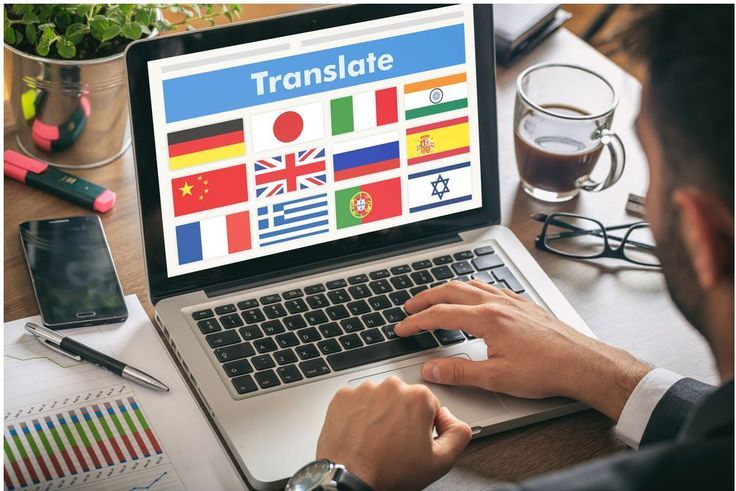When it comes to healthcare, clear communication can be a matter of life and death. Patients and medical professionals must understand each other perfectly, regardless of language barriers. That’s where medical translators come in. Whether you’re in the USA, South America, or working within medical institutions, reliable medical translation services are essential for delivering accurate and safe care.

Why Medical Translation Matters
Medical translation is not just about converting words from one language to another. It’s about conveying critical information with precision. Mistakes in medical documents can lead to wrong treatments, missed diagnoses, or serious legal consequences. That’s why specialized medical translators available are experts in medical terminology, culture, and confidentiality.
Common Areas Needing Medical Document Translation
- Patient records and histories
- Prescription instructions
- Consent forms
- Clinical trial documentation
- Medical device manuals
Each document requires careful attention to detail and understanding of medical jargon across different languages.
Medical Translators Available: USA and South America
Both the USA and South America are linguistically diverse regions, creating a huge demand for skilled medical translators.
In the USA
- The rise of Spanish-speaking populations means more patients need medical document translation from English to Spanish and vice versa.
- Hospitals and clinics often require translators to assist with languages like Chinese, Tagalog, Vietnamese, and many others.
- Legal requirements and patient rights emphasize professional medical translation services to maintain compliance with healthcare regulations.
In South America
- Countries like Brazil and Argentina often need medical translation between Portuguese and Spanish for regional healthcare collaboration.
- Indigenous languages are also a factor, so translators sometimes work on documents in Quechua, Guarani, or Aymara to improve care in rural and native communities.
- Medical institutions in South America benefit from international partnerships, requiring accurate translation for international research and medical exchange.
Benefits of Using Professional Medical Translation Services
Choosing professional services ensures quality and confidentiality. Here’s what medical institutions gain:
- Accuracy: Only certified translators with medical knowledge can handle complex documents without errors.
- Confidentiality: Patient information is protected under strict privacy laws like HIPAA in the USA.
- Cultural Competency: Translators understand cultural differences that affect communication and patient care.
- Compliance: Proper translation helps institutions meet legal and ethical standards in healthcare delivery.
- Improved Patient Outcomes: Clear communication leads to better diagnosis, treatment, and patient satisfaction.
Tips for Medical Institutions Seeking Medical Translators
If you’re part of a hospital or clinic, here’s how to get the best out of medical translation services:
- Look for Certification: Check if translators have credentials in medical translation and language proficiency.
- Ask About Specialization: Choose translators experienced in your medical field, be it cardiology, oncology, or pharmaceuticals.
- Use Healthcare-Specific Technology: Some services offer software that supports accurate and consistent medical document translation.
- Plan for Urgency: Medical emergencies may require quick translation, so find providers who can respond promptly.
- Maintain Quality Control: Implement a review process where translations are double-checked by other medical experts.
Challenges in Medical Document Translation
Despite its importance, medical translation faces hurdles:
- Language Nuances: Medical terms don’t always have direct equivalents between languages.
- Slang and Dialects: Regional differences mean translators must be aware of local linguistic variations.
- Technical Complexity: Medical texts are full of abbreviations, symbols, and data that require precision.
- Ethical Concerns: Translators must strictly follow confidentiality and impartiality standards.
Overcoming these challenges requires working with highly skilled medical translators available through trusted agencies.
The Future of Medical Translation Services
The healthcare industry is evolving with telemedicine, AI tools, and global collaboration. Yet, the need for expert human medical translators remains strong. Combining technology with a human touch ensures:
- Faster and more efficient translation workflows
- Increased accessibility for non-English-speaking patients
- Enhanced communication in international medical research and clinical trials
Summary
In the USA, South America, and medical institutions worldwide, professional medical translation services are key to delivering safe and effective healthcare. Whether it’s complex medical records or essential patient instructions, relying on expert medical translators available ensures nothing gets lost in translation. By investing in quality medical document translation, healthcare providers can improve patient outcomes, meet legal requirements, and foster better communication across languages.

